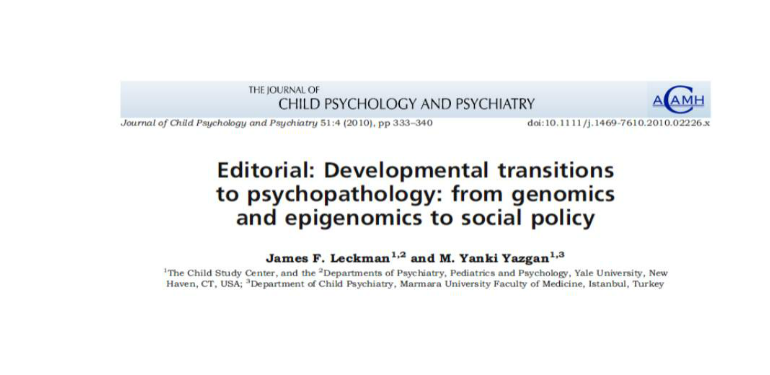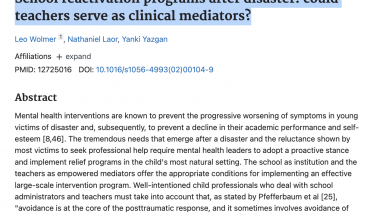Prodrome: An early, nonspecific set of symptoms that indicate the onset of disease before specific, diagnosable symptoms occur’ (National Research Council and Institute of Medicine., 2009)
Mental, behavioral, and developmental disorders with childhood onset are a major public-health concern(WHO, 2005). Based on the National Comorbidity Survey Replication study, about half of all Americans will meet the criteria for a DSM-IV disorder sometime in their life, with first onset usually in childhood or adolescence (Kessler et al., 2005). Impulse control and anxiety disorders lead the way with a median age of onset of 11 years of age. It is likely that a majority of mental, behavioral, and developmental disorders begin in childhood and adolescence. Yet the mental health needs in young people are often unmet, even in high-income countries (Leckman & Leventhal, 2008;UNICEF, 2007). Given the stigma associated with mental disorder and the small numbers of trained professionals, there is an urgent need to develop efficacious interventions aimed at prevention or early treatment that can be implemented by non-specialist health workers in primary health care settings (National Research Council and Institute of Medicine,2009). The focus of this annual review issue is the importance and the current status of prodromal research. As various reformulations of diagnostic criteria are being considered as part of the DSM-V and ICD-11 deliberations, there is an urgent need to highlight the importance of developmental and dimensional processes that contribute to the emergence of full syndromes (Hudziak, Achenbach, Althoff, & Pine, 2007; Pine et al., 2010; Regier et al.,
(2009); Shaffer, Fischer, & Burke, 2010).


